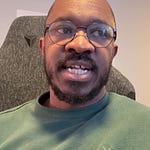
It’s amazing how the people most fired up about making our climate better, can be making the fight against climate change worse.
Or at least, harder than it needs to be. If we’re going to save this planet, we need everybody demanding action right away. But the way we’re talking about this problem isn’t doing much good. Granted, Americans are mostly agreed that something has to be done. Pew Research says only 14% of us remain solidly unconvinced that climate change is happening. But wouldn’t this all be easier with 100% support? Especially if that 14% included voters or business leaders or lawmakers — people who can make a real difference?
Don’t believe for a minute they’re not among that group. Clearly they’re more than enough to make saving the world harder.
What if, instead of just hammering people with every single bit of climate information about every catastrophe that happens around the world, scientists connected more effectively? Turns out the scientific community has done something few other professions do: study its own work. Sure enough, bombarding the public with information just doesn’t work. We’ve known for a while that this tactic, called the deficit model of communication, assumes that people don’t believe the science because they haven’t heard enough of it. Tell them more, the model suggests, and they’ll believe it. Clearly it doesn’t work that way.
Still, there’s another factor behind why more people believe in climate change. Their climates are changing. I’m writing this from my apartment in Las Vegas, a city that just a few days ago was 103 degrees… and 110 degrees before that. Bone dry. (My sinuses hated it, but now they love it.) Now we’re waiting for Hurricane Hillary to make landfall. Forecasters expect it to make landfall in Baja California, then reach California as a tropical storm. A tropical storm warning is in effect in Southern California for the first time ever. Add to that the fires in Canada, the recent fires in Maui, a summer of intense weather, outbreaks of coral bleaching… more people are getting the message, now that they have no choice.
Fortunately, more organizations are helping scientists build their communication skills. The best part is, the techniques they’re learning work for all kinds of subjects. They can work for you too, especially in a moment where you have to think on your feet.
Enjoy Part 1 of my conversation with Josh Rice from Stony Brook University’s Alda Center for Communicating Science. I’ve split the conversation in half this time around. Part 2 is next week. So far the episodes have been about an hour long, but let me know what you think of the shorter format.
REMEMBER, THIS THURSDAY — “ASK ME ANYTHING!”
Be sure to submit your questions for this week’s AMA, streaming live on YouTube. Here’s the link… ➡️ WATCH LIVE: THURSDAY, AUGUST 24TH, 7:00 PM ET
Paid subscribers get priority on the questions list. You can also comment on this post in Substack with your question. And feel free to share the link with others. It would really help build the community around this show. I’m grateful for your financial support, and together we can keep the momentum going. Let’s get more people connected to The Night Light. Thanks, and enjoy Episode 6.












